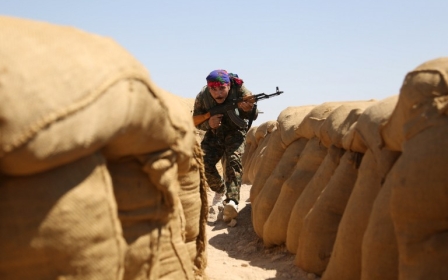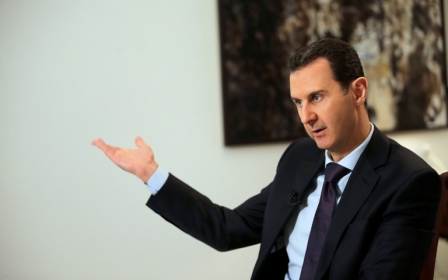Saudi says Syrian rebels should receive anti-aircraft missiles

Saudi Arabia's foreign minister said moderate Syrian rebels should be armed with surface-to-air missiles against the Russian-backed Assad government, a German news weekly reported Friday.
Anti-aircraft weapons could tip the scales on the battlefield as they did in Soviet-occupied Afghanistan in the 1980s, Adel al-Jubeir is quoted as saying in an interview with Der Spiegel.
"We believe that introducing surface-to-air missiles in Syria is going to change the balance of power on the ground," he said, stressing this would have to be decided by a coalition of partner states.
"It will allow the moderate opposition to be able to neutralise the helicopters and aircraft that are dropping chemicals and have been carpet-bombing them, just like surface-to-air missiles in Afghanistan were able to change the balance of power there."
US deliveries of Stinger missiles to Afghan mujahideen fighters during that country's Soviet occupation is credited with having significantly turned around the conflict that ended in Russia's withdrawal.
The minister cautioned that "this has to be studied very carefully, however, because you don't want such weapons to fall into the wrong hands".
"This is a decision that the international coalition will have to make," Jubeir added. "This is not Saudi Arabia's decision."
He also said that Russian support would not save the government of President Bashar al-Assad in the long term, reiterating Riyadh's call for him to step down.
"The other option is that the war will continue and Bashar al-Assad will be defeated," he is quoted as saying.
Saudi Arabia has backed rebel forces fighting Assad in the country's five-year civil war.
It has also been part of the US-led coalition bombing the Islamic State militant group in Syria and Iraq since late 2014.
Jubeir told AFP this week that any Saudi troops, including special forces, on the ground would make the battle against the IS its priority.
"We expressed our readiness to join the US-led, international coalition against Daesh with special forces," he said, using an Arabic acronym for the group.
"All of this, however, is still in the discussion phase and in the initial planning phase," he added.
Der Spiegel also asked the Saudi chief diplomat about similarities between the type of Islam practiced in his country and the Islamic State's ideology.
"ISIS is as much an Islamic organisation as the KKK in America is a Christian organisation," he said, referring to the white-supremacist Ku Klux Klan movement.
"They burned people of African descent on the cross, and they said they're doing it in the name of Jesus Christ.
"Unfortunately, in every religion there are people who pervert the faith. We should not take the actions of psychopaths and paint them as being representative of the whole religion."
Stay informed with MEE's newsletters
Sign up to get the latest alerts, insights and analysis, starting with Turkey Unpacked
Middle East Eye delivers independent and unrivalled coverage and analysis of the Middle East, North Africa and beyond. To learn more about republishing this content and the associated fees, please fill out this form. More about MEE can be found here.




